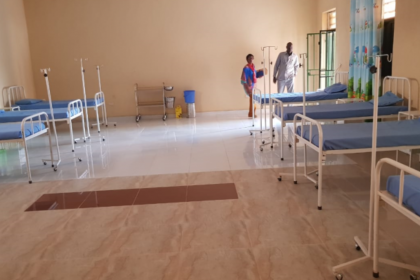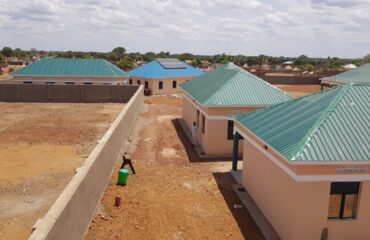
CMW is working hard to reach out to as many children and vulnerable communities as possible, by scaling up low-cost, high impact interventions in the Early Childhood and Development programme. In a bid to provide quality healthcare services to pregnant mothers and children, the organization through the support from their friends in Netherlands has constructed a 20 bed ward in their newly constructed healthcare facility in Aweil Central where they provide low cost healthcare services. We need to build more maternal and child health facilities in the region as most mothers still give birth at home, a scenario that poses bleak future for children.
In a bid to enhance access to quality health services, we are working with communities to strengthen the referral of sick children and mothers to our health facilities, through low-cost, community-managed ambulance at our health facility in Aweil town. In addition, we appeal to well-wishers to help us build more health as most parts of Northern Bhar el Ghazal lack properly equipped health facilities.
We place a greater emphasis on healthcare, and at present we are appealing for donations to stock our health facility with essential medical supplies (drugs and equipment) and scale-up services to rural and hard-to-reach communities. Some of the equipment we are currently seeking for urgently include: HIV test kits and Anti Retro Viral drugs; Rapid Diagnostic Test (RDT) kits for malaria, and drugs for the treatment of non-complicated childhood malaria and pneumonia. We also envisage stocking health facilities with ready-to-use-therapeutic foods for management of acute malnutrition, and provision of lactate milk to mothers who are breast feeding in Aweil Central, Aweil East, Aweil South, Aweil North and Aweil West counties.
In addition, CMW continue to source for funds to construct Community Led Total Sanitation (CLTS) toilets within our target communities as many households in our target communities have not attained Open Defecation Free (ODF) status, and as many neighboring communities are learning CLTS approaches.
